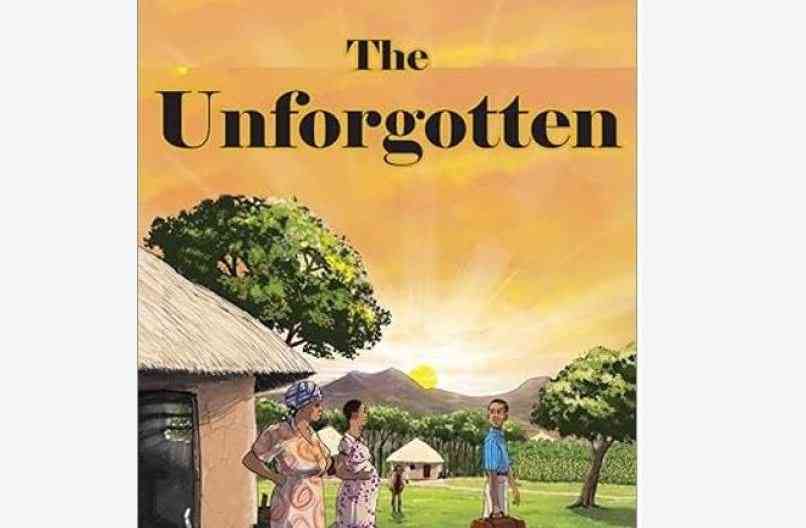
Imali Abala's The Unforgotten (2023) is a captivating story that takes a postmodernist trajectory through deliberate rejection of the grand narrative to focus on subjects considered trivia by the rational modernist perspective.
Citing Lyotard, Datta (2018) contends that contemporary literature does not have to abide by the universalisation of values that elevate politics, history, science and social progress in tandem with demands of rationality.
Abala executes this by creating nondescript characters that express gender disparities, witchcraft in marriage relationships and the role of religion in contemporary societies.
The Unforgotten is the story of Jordan Ombisi, Desi Makungu's son who leaves his parents in Western Kenya in search of greener pastures in Pemba and does not return. His brother, Yosia who had set the pace by becoming the first police officer in the village abandons his wife, Jonesi, for years, but when she makes an impromptu visit gets Yosia pants down with a mistress from the local community. Yosia's mistress storms out.
When the wife is changing the bedding, the cheekbone of a dead albino falls to the floor. Scared of the occultism, Yosia deserts his job and returns home with his family.
Cunning women in these coastal regions use witchcraft to ensnare husbands. When Jordan Ombisi joins Yosia, he abandons his wife, Jewel; Mother, Makungu and father Elamu. It is confounding how Ombisi snubs his wife when she comes to birth and delivers their firstborn, Adika; Ombisi completely ignores her letters.
When the child dies after a short illness, Ombisi remains silent. His father sends Yosia to go to Pemba and search for him; Ombisi's friends reveal that he converted to Islam and is now a Mr Khalid Salim.
Despite their accommodation of his new religion, his slipperiness compounds their misery. Yosia and the brother, return home without Jordan Ombisi. It is even bewildering when Ombisi's mother and father pass on without his presence.
As the mother, Desi Makungu dies; Elamu's spirit reveals to her that Ombisi is still alive. The narrator seems to suggest that female offspring are of greater help to parents than males.
While Makungu's daughter, Aleyo gives her material support after Elamu's demise, the sons become indifferent because their biological mother having died early, and their father married Makungu as a stepmother to raise them.
The narrator, who is Aleyo's daughter demonstrates how her mother persuades the father, Ambasa to build a permanent house for Makungu and ends up inheriting her material wealth. The errant Ombisi is given land despite his ingratitude and disappearance.
The subject of the novel is the impact of occultism or witchcraft on African families as expressed through Yosia's ordeal in the hands of an odd mistress.
Although modernist thinkers such as Caputo (2015) consign spiritual subjects to the private space akin to insanity, Abala takes a postmodernist stance to demonstrate how the so-called trivial subjects wreak havoc in the lives of Ombisi and his immediate family.
The Albino cheekbone that Yosia's wife finds under her mattress is applied to destroy Ombisi's relationship with his first wife and mother. Abala suggests that while rationality solves some problems, it cannot solve the spiritually related predicament that binds the victim for decades.
Abala in 'Unforgotten' reiterates Edward Blyden's postulation that one pertinent feature of the African race is a propensity to the spiritual aspects of life.
While Blyden's focus is the positive aspects of African spirituality, Abala shows the negative aspects that contribute to Ombisi's bondage and disappearance from home. The harmful spirituality contributes to a violation of the rights of marginalized groups such as albinos- they are murdered to facilitate these bizarre acts of occultism.
At the level of form, Abala chooses nondescript characters from the village to fit in the broader postmodernist vision. The major character, Aleyo's daughter remains nameless in the novel to signify repudiation of the grand narrative on one hand, and represent women and girls as the oppressed group on the other.
The protagonist also speaks in internal monologues in several sections as an indication of what Anders Breidlib refers to as the "non-self" defined as a self that expresses itself mentally due to prevailing othering conditions. Indeed cultural traditions 'otherize' women and girls in the protagonist's society.
For example, the sons neglect their stepmother, Makungu, despite her tireless effort to raise them after their biological mother's demise. They spend time haggling over her land yet her house has been destroyed by a rainstorm.
It takes her stepdaughter's (Aleyo's) intervention for Makungu to have a house. Her husband's religious career signifies the pertinent role of religion in society.
The Unforgotten is an interesting novel that meets Chinua Achebe's criterion of the untold stories of Africa to the world.
- Dr Andrew Nyongesa is a lecturer, Murang'a University of Technology
 The Standard Group Plc is a multi-media organization with investments in media
platforms spanning newspaper print
operations, television, radio broadcasting, digital and online services. The
Standard Group is recognized as a
leading multi-media house in Kenya with a key influence in matters of national and
international interest.
The Standard Group Plc is a multi-media organization with investments in media
platforms spanning newspaper print
operations, television, radio broadcasting, digital and online services. The
Standard Group is recognized as a
leading multi-media house in Kenya with a key influence in matters of national and
international interest.
